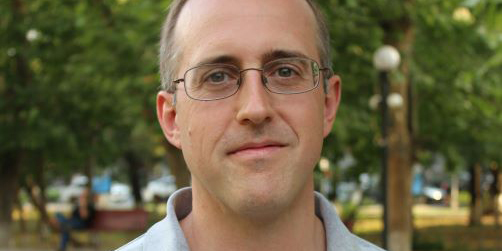Scott Demyan has been awarded a Fulbright U.S. Scholar Award to research “Technology for improved agroecosystem crop residue use and mineral-enhanced biochar production” in Thailand. From August 2024 – January 2025, Demyan, associate professor in soil and environmental mineralogy, School of Environment and Natural Resources, College of Food, Agricultural and Environmental Sciences, will research the use of infrared spectroscopy for characterizing both potential biochar feedstocks and biochar quality for targeted soil ecosystem services.
“I choose Thailand for this research due to the unique combination of biophysical conditions (monsoon-savannah climate, range of highly weathered to rich alluvial and mountain soils) and diverse agroecosystems which have been undergoing intense land use change over the last decades. Thailand, often referred to the rice bowl of Southeast Asia, is typically in the top five or six countries in rice, first in natural rubber, and third in palm oil production. Thailand, along with other countries in Southeast Asia, also experiences seasonal air quality issues mainly related to forest fires and cropland burning. My research into biochar and soils can potentially further the sustainable uptake of alternatives to crop burning and contribute towards improving air quality,” shares Demyan.
Demyan will be hosted by the Department of Highland Agriculture and Natural Resources in the Faculty of Agriculture at Chiang Mai University. This department has expertise and long-term ongoing research on the complex agroecosystems of northern Thailand and impacts on soil management.
“My Fulbright topic intersects with both my ongoing research in soil organic matter and mineral interactions and the increasing recognition of the importance of soil ecosystem services other than food production such as carbon storage. Using crop residues as a readily available source for biochar is a possibility to increase soil carbon. Biochar has been cited as a crucial element of land-based strategies for climate mitigation due to it being a stable form of carbon, but using crop residues creates competition with other uses such as return of residues to the soil for erosion reduction or as livestock fodder. Biochar also varies in quality depending on feedstock and production conditions, thus presenting both opportunities and challenges in implementation,” explains Demyan.
“I greatly appreciate the opportunity afforded by Fulbright to conduct research overseas that I probably would not have otherwise. In addition to the specific research objectives focused on improved crop residue utilization and biochar production, I would like to gain experience in tropical and subtropical agroecosystems and soils. Soils of the tropics are often thought of as highly weathered and of low fertility but exhibit wide variability. I will also use these experiences to inform my research and teaching back at Ohio State and to build a research network in the region focused on similar research activities,” says Demyan.
Fulbright Program
For more information about the Fulbright U.S. Scholar Program, visit fulbright.osu.edu or contact Joanna Kukielka-Blaser.
